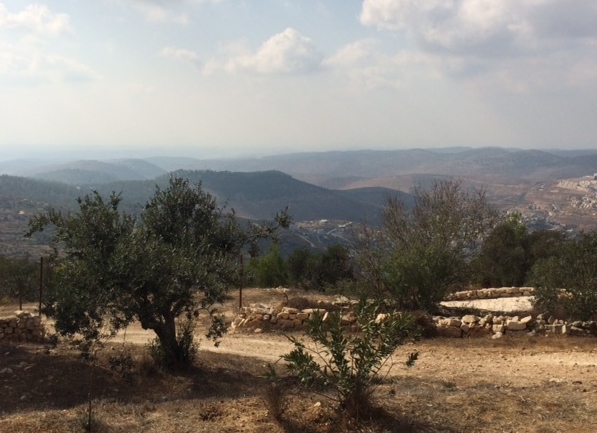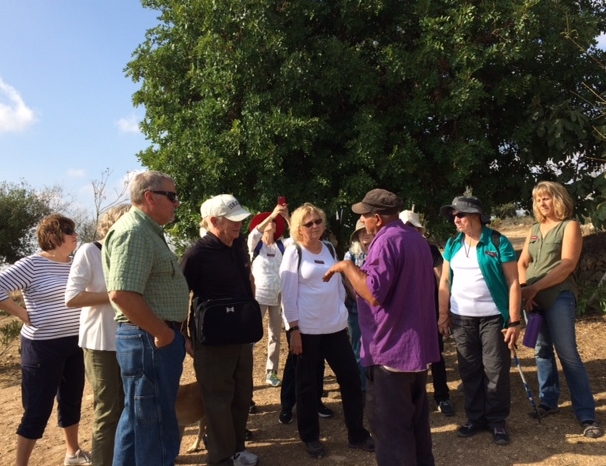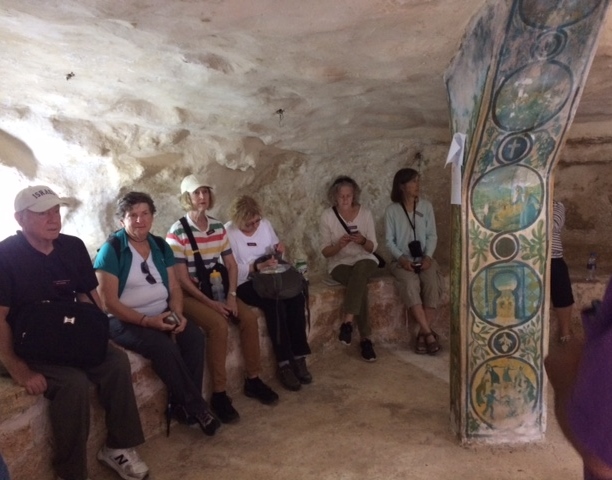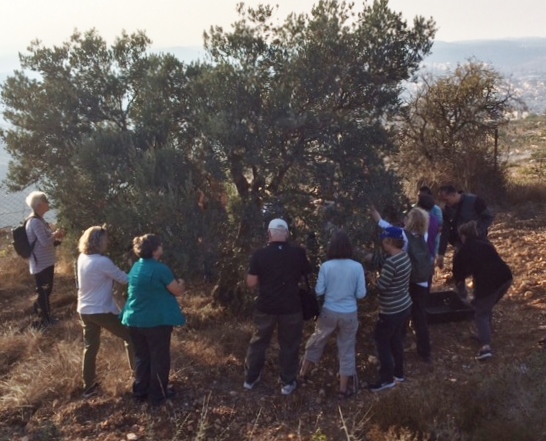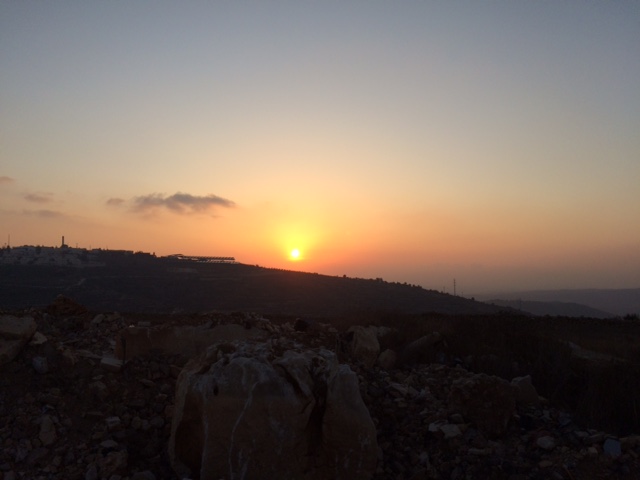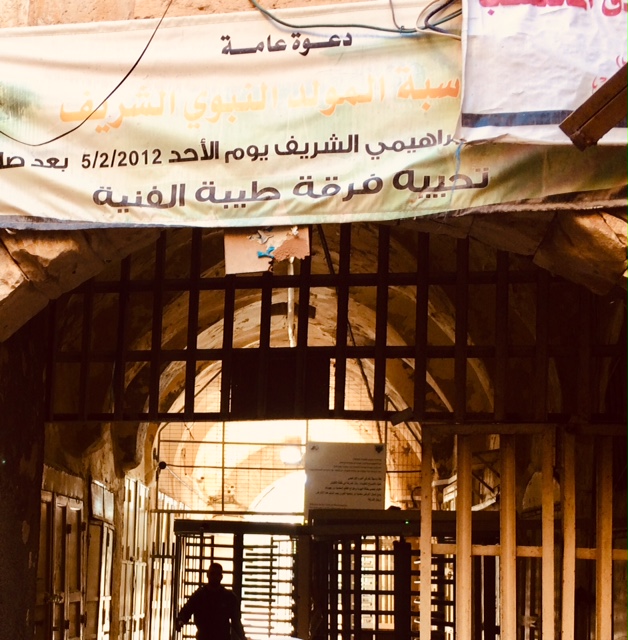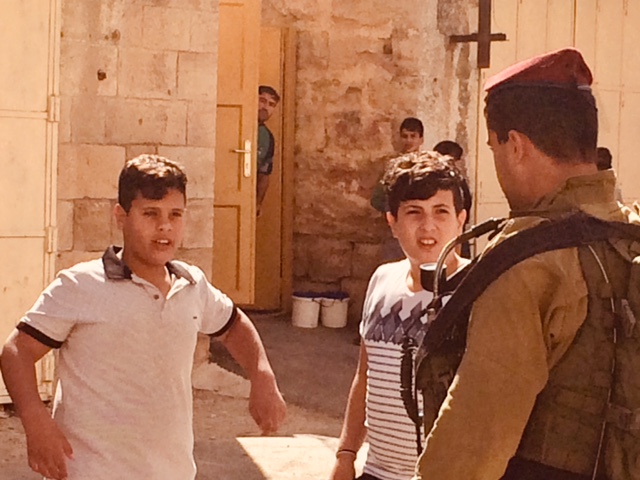20 Oct ~ Shannon Clarkson and Anna Schoettle
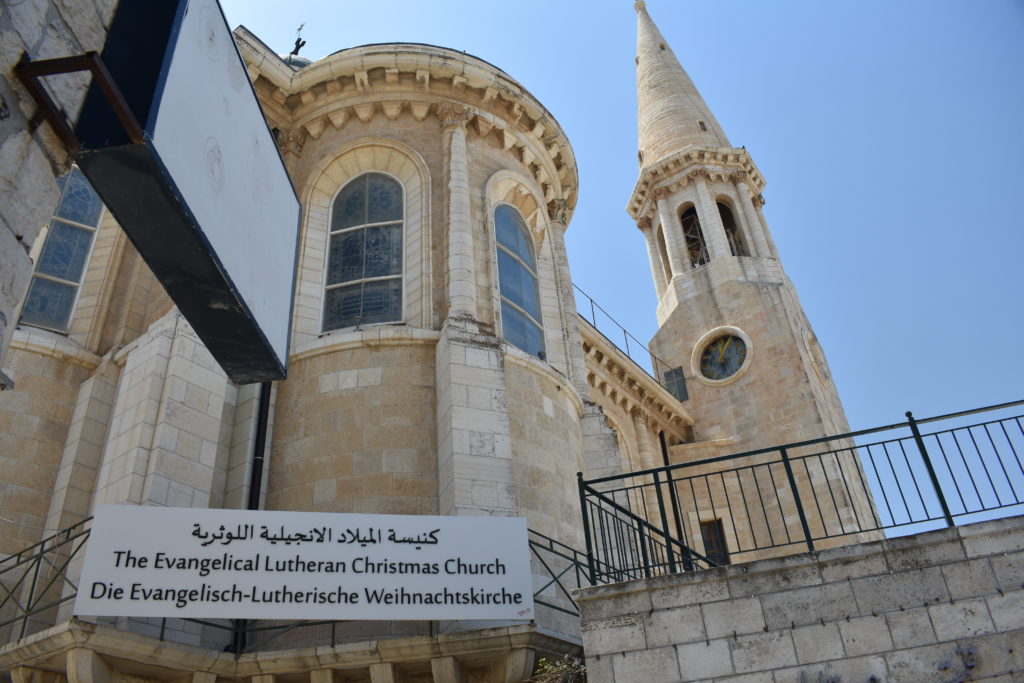
Shannon: We began our morning at the Evangelical Lutheran Christmas Church in Bethlehem. The church filled fairly quickly and although the pastor, Mitri Raheb, whom we had hoped to hear was not there, the liturgy carried the day. Even tho the language was Arabic, the order of service and litanies were familiar to many. We prayed, sang, went forward to receive communion and were blessed. Following the service we walked through the streets until we were guided into a small restaurant and then led up narrow winding stairs to an upper room where our leader Usama collected our preferences, vegetarian, beef, or chicken, for our “sandwiches.”
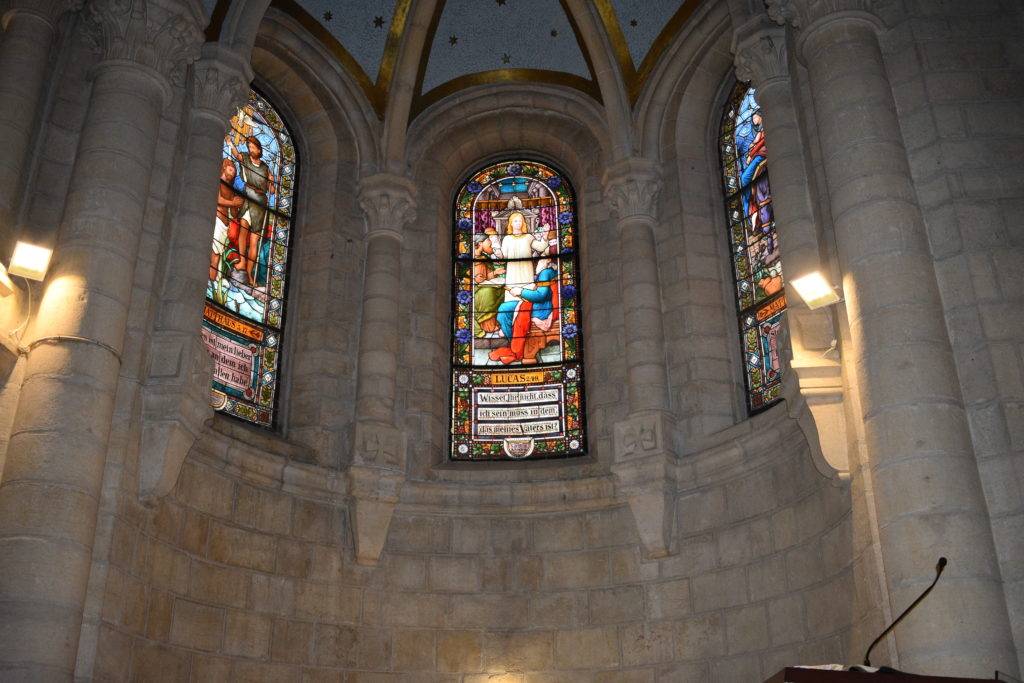
Anna: We did only two things today, but they were both extremely significant. Besides having a little free time this morning, we attended church at the Evangelical Lutheran Christmas church. This is a beautiful medium sized Church in Bethlehem. It has beautiful, original stained glass windows, three of which depict scenes of the Christmas story. Today in this church there were the regular congregation from Palestine, then people from a number of places in the US, Germany, the Netherlands, and Japan. The service is mainly in Arabic, but they invite people to sing and pray in their own language. This was particularly noticeable during the Lord’s Prayer, when there were at least five languages being spoken. One of the musicians played the oud, and two of the sung parts of the service used Middle Eastern scales and style, and added a lovely flavor to the music.
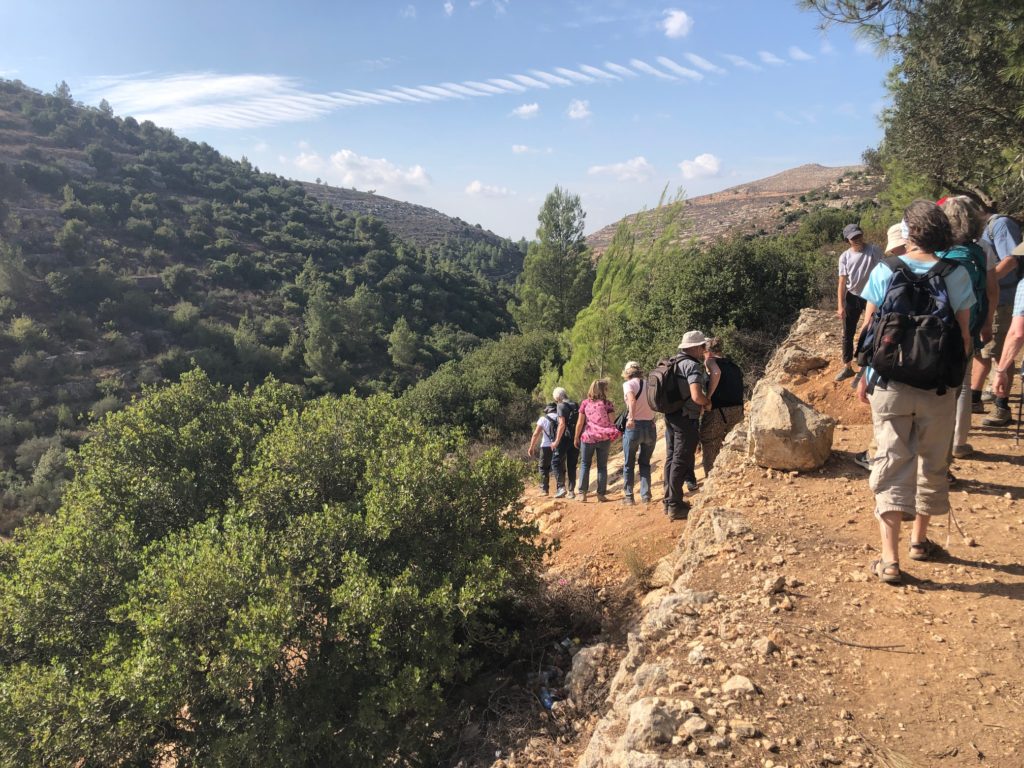
Shannon: Following a quick change from church clothes to hiking apparel we gathered on our bus for a ride to a sometimes challenging hiking trail through a valley currently occupied and farmed by Palestinians, but which is destined to become Israeli land when the wall in that area is completed. Meanwhile, as long as the roofs on the scattered houses are made of temporary materials their homes are not destroyed and the caves and fields remain accessible to them. We passed several owners picking olives and on our way out saw two men carrying large burlap bags on their shoulders filled with them. As a compliment to our group, our guide commented that he had never led a group that was able to walk so ably and at such a good pace through the valley.
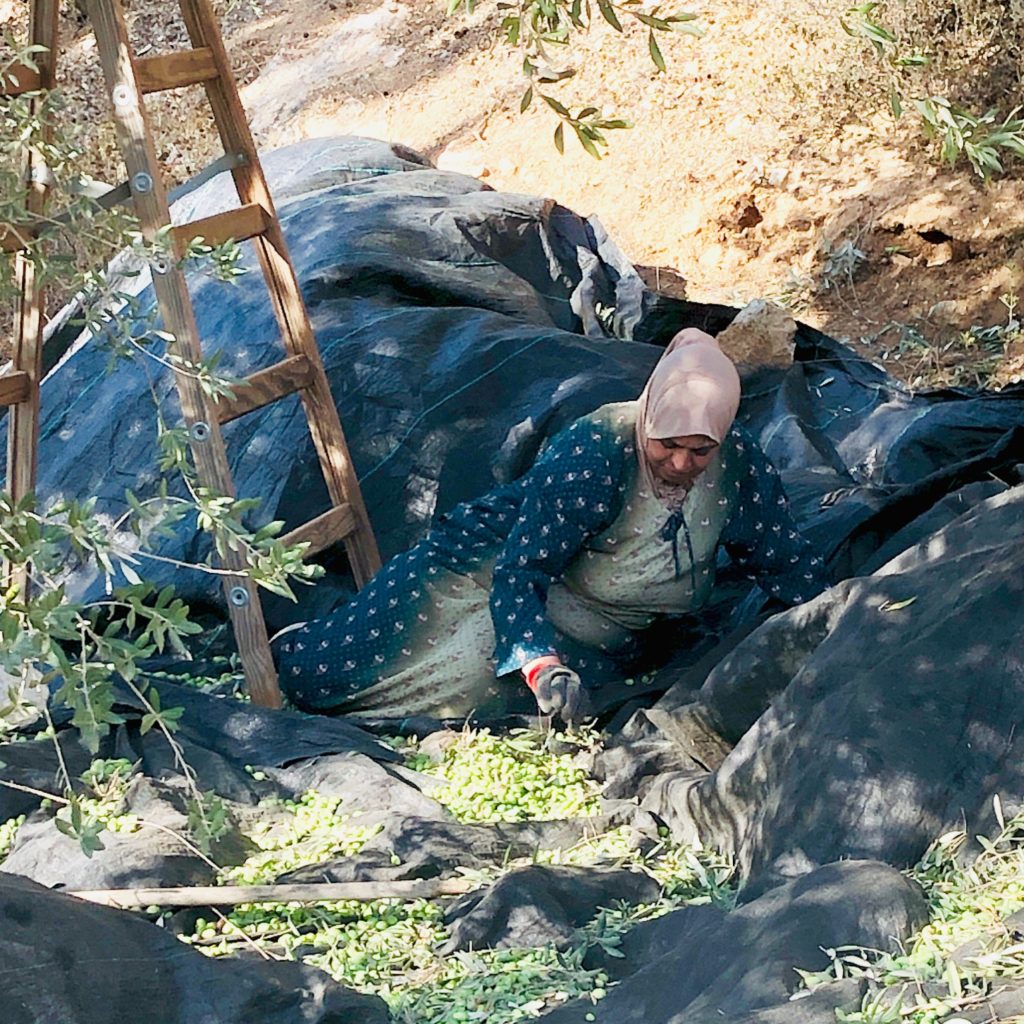
Anna: After the service, some conversation, a walk through the market, and lunch, most of us set out on a hike down a beautiful Valley outside of Bethlehem. Here we got to see terraces of olive trees and people harvesting their olives. Many of the terraces are hundreds if not a thousand or two years old. We also got to see where the wall has not yet been built. Once the wall is built, the Palestinian farmers will not be able to access their traditional family farms. This is painful to hear about. It is yet another place where the squeezing of the Palestinian people is very obvious. The Israeli government is not the first government to take land from another people. We from the US could reflect here… That doesn’t excuse this though. Being able to experience the beauty of this land made me appreciate lands that we have set aside in the US for all to enjoy. It was a beautiful day and in the moment did seem like a day the Lord has made.
Shannon, further reflections: Back on the bus, someone asked how guides were chosen for Israel and Palestine. He replied that there are about 13,000 Israeli tour guides and about 92 of them are permitted to also lead tours in Palestine. However, he noted that many more also lead tours there. Only 40 Palestinians are permitted to lead tours in Jerusalem and while there may only tell the Israeli narrative. As we watched the kestrels soaring freely above us, many if not all, thought of the irony that the birds of the air were free to fly where they wished, but those whose soles were citizens of Palestine must stay within their ever diminishing borders.

